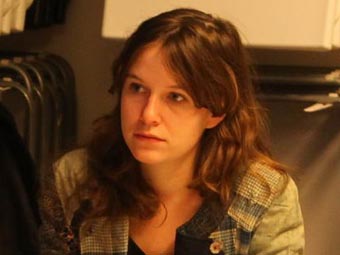The Belarusan National Platform of the EaP CSF issued a statement in connection with the wave of searches in the editorial offices of the Belarusan media and the detention of journalists.
How will the EU-Belarus puzzle be solved?

What is planned to discuss during the roundtable on rethinking European politics towards Belarus that is to be held on June 19 in Brussels?
“EU-Belarus puzzle: rethinking European policy towards Belarus” is the topic of the roundtable that is to take place in the European Parliament on June 19. The event is organized by the International Consortium “EuroBelarus”, Centre for European Transformation, Legal Transformation Centre (Lawtrend) and supported by Werner Schulz, the member of the European Parliament. More details about the plans for discussion to the EuroBelarus Information Service were given by Alena Zuikova, the analyst at Centre for European Transformation and the representative of the International Consortium “EuroBelarus” in Brussels.
— What is this event in Brussels timed to? How can it be useful for the Belarusan civil society and the European politics?
— EU is working hard to support civil society in Belarus. This support has always existed, since the beginning of the relations between the EU and independent Belarus. However, if we take into consideration the “thaw” of 2008-2010, we’ll understand that this meant not only mending fences with the state, but the new forms of cooperation with the civil society. It resulted in formation of Belarusan National Platform of the Civil Society Forum. Then, after December 19, 2010 a new crisis in Belarus-Europe relations appeared: EU announced about its readiness to provide Belarusan civil society with wider assistance as well as allocated additional means and introduced new instruments, among which the European Dialog on Modernization is, perhaps, the most notable.
It is declared that the measures developed by the EU can really benefit to the civil society and result in progress of cooperation between the EU and Belarus. However, we see that after two and a half years after the events of December 19, 2010, in reality little has changed, as practical realization of the new European instruments preserves status quo rather than leads to progress. European Dialog on Modernization that was designed as an area for dialog of stakeholders has stalled and ceased to become a prominent instrument.
There appeared the necessity to sum up the work done, analyze it and cross the t's, which we want to do in Brussels. We find it important to indicate what favors the progress and what has a negative impact. We should give critical evaluation to the work of the civil society in Belarus and to the EU actions. Our stance should be recognized by people in charge of decision-making process in the EU, and open discussion will help us to do that. Unfortunately, a single event can’t fully change the EU politics; but we expect support and attention towards our problems of our European colleagues.
— Why is it now that such roundtable takes place?
— European Parliament is currently on a new stage of work over the report prepared by Justas Paleckis. This report is the first that represents the attempt to rethink EU policies, not the respond to the situation in the country. And there is no doubt it will considerably influence the actions of other European institutions.
As far as I know, since the beginning of Justas Palecskis’ work there was no public discussion aimed at exchange of opinions about the EU policies towards Belarus with the
broad participation of political players. All opinions were expressed during personal meetings with the reporter or were put down on paper. And we are really glad that Mr. Paleckis will take part in our roundtable.
Two weeks ago there was a debate in Parliament about the first version of the report, and suggestions about the amendments were developed. Now negotiations between different factions and deputies will be conducted as to what will be included in the new version of the report. The work during the forthcoming two weeks will be intense, though it won’t be noticeable for the observers from the outside.
That is why now is the best moment to mark our stance and bring it up for discussion with the European Parliamentarians as well as representatives of other political and social structures.
Others
-
Statement of the Belarusan EaP CSF National Platform on solidarity with the civil society of Armenia
The Belarusan National Platform of the Eastern Partnership Civil Society Forum issued a statement on solidarity with the civil society of Armenia.
-
Statement of the BNP in connection with the criminal prosecution of the leaders of the Belarusan independent trade unions
The Belarusan National Platform of the Eastern Partnership Civil Society Forum issued a statement in connection with the criminal prosecution of the leaders of the Belarusan independent trade unions.
-
Final event of project CHOICE — Paving the way to European Year of Cultural Heritage 2018
The final event of the two-year EU funded project CHOICE — Cultural Heritage: Opportunity for Improving Civic Engagement was held on June 6, 2017 at the Committee of the Regions, in Brussels.
-
Heritage is a verb. The results of the CHOICE project were summarized in Minsk (Photos and video)
Does Belarus need a “Public Ministry of Culture” and “Ašmiany Charter” to deal with the historical and cultural sites?








Comments
From farewell to a new Eastern policy and towards a new development
Poland and Germany were both initiators and drivers of a New Eastern policy linked to the Eastern neighborhood and Russia/Soviet Union.